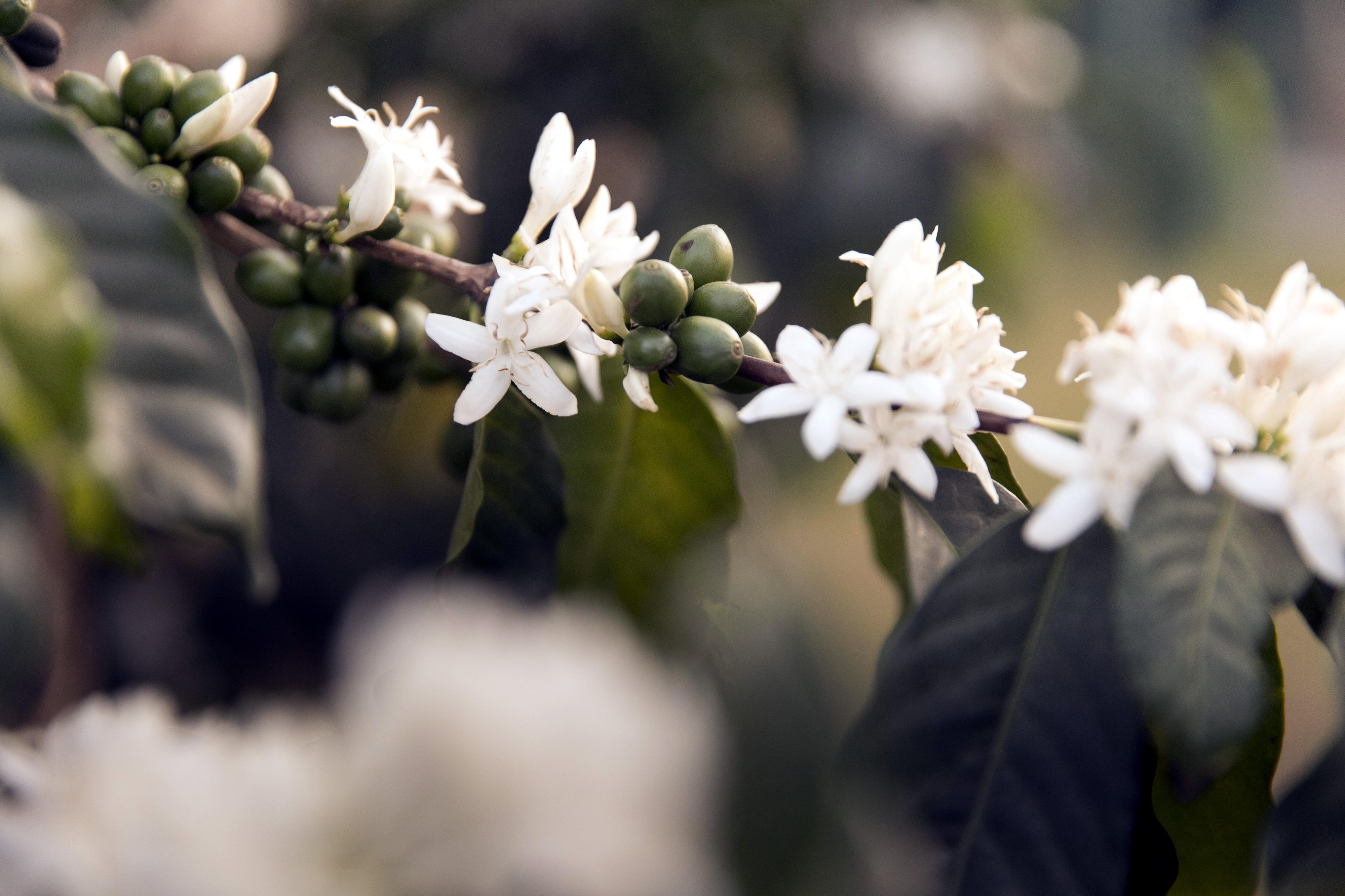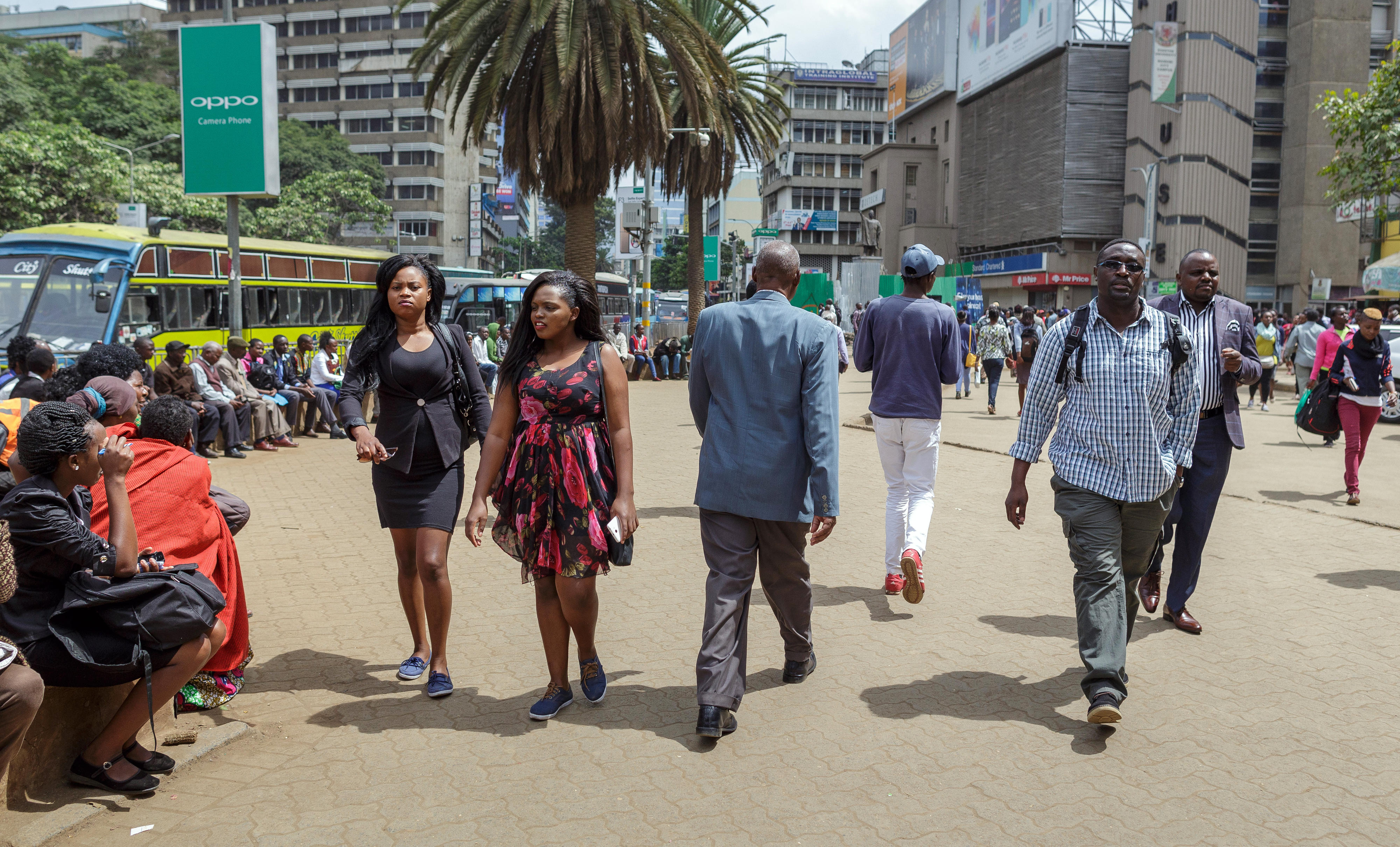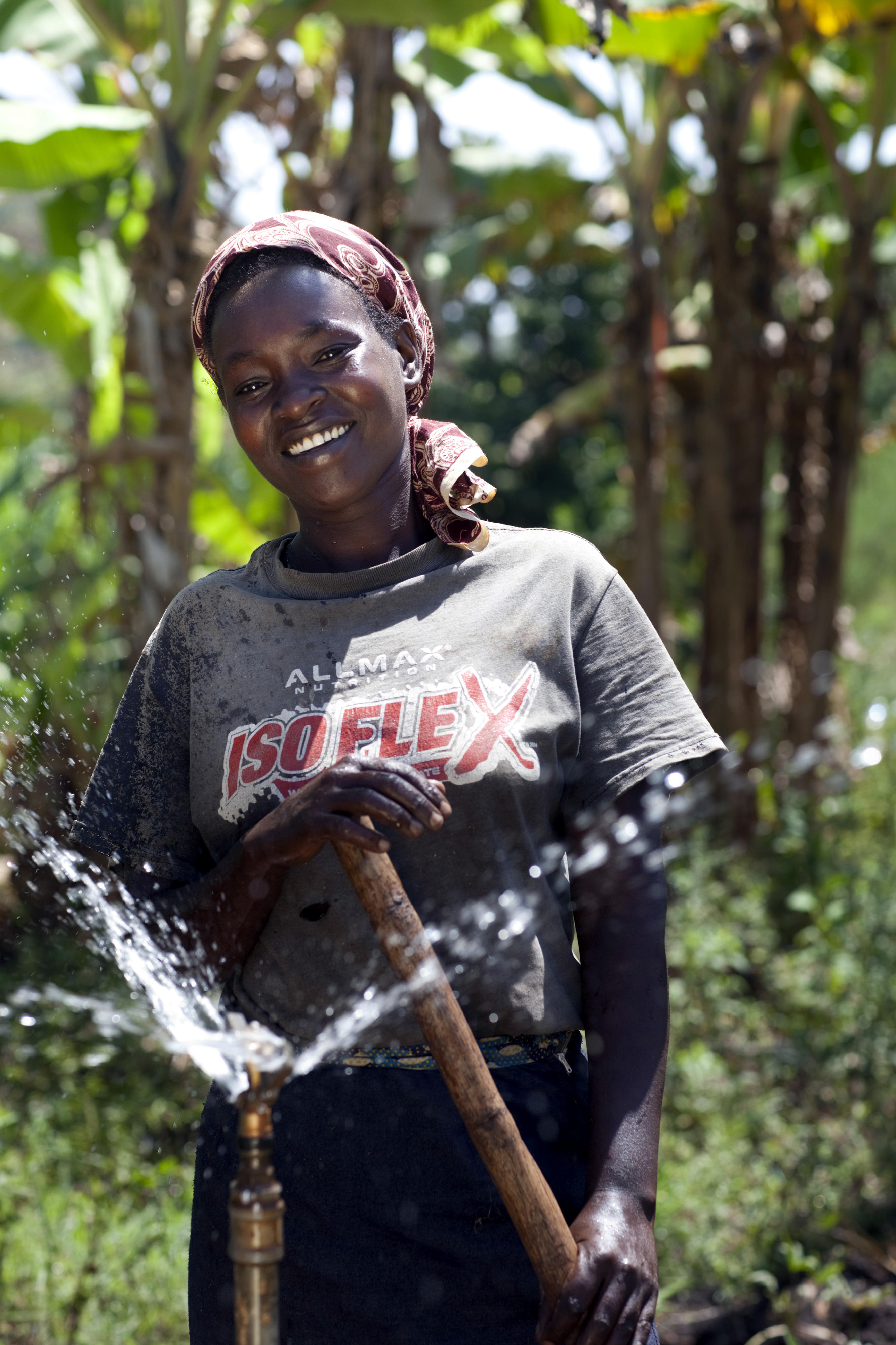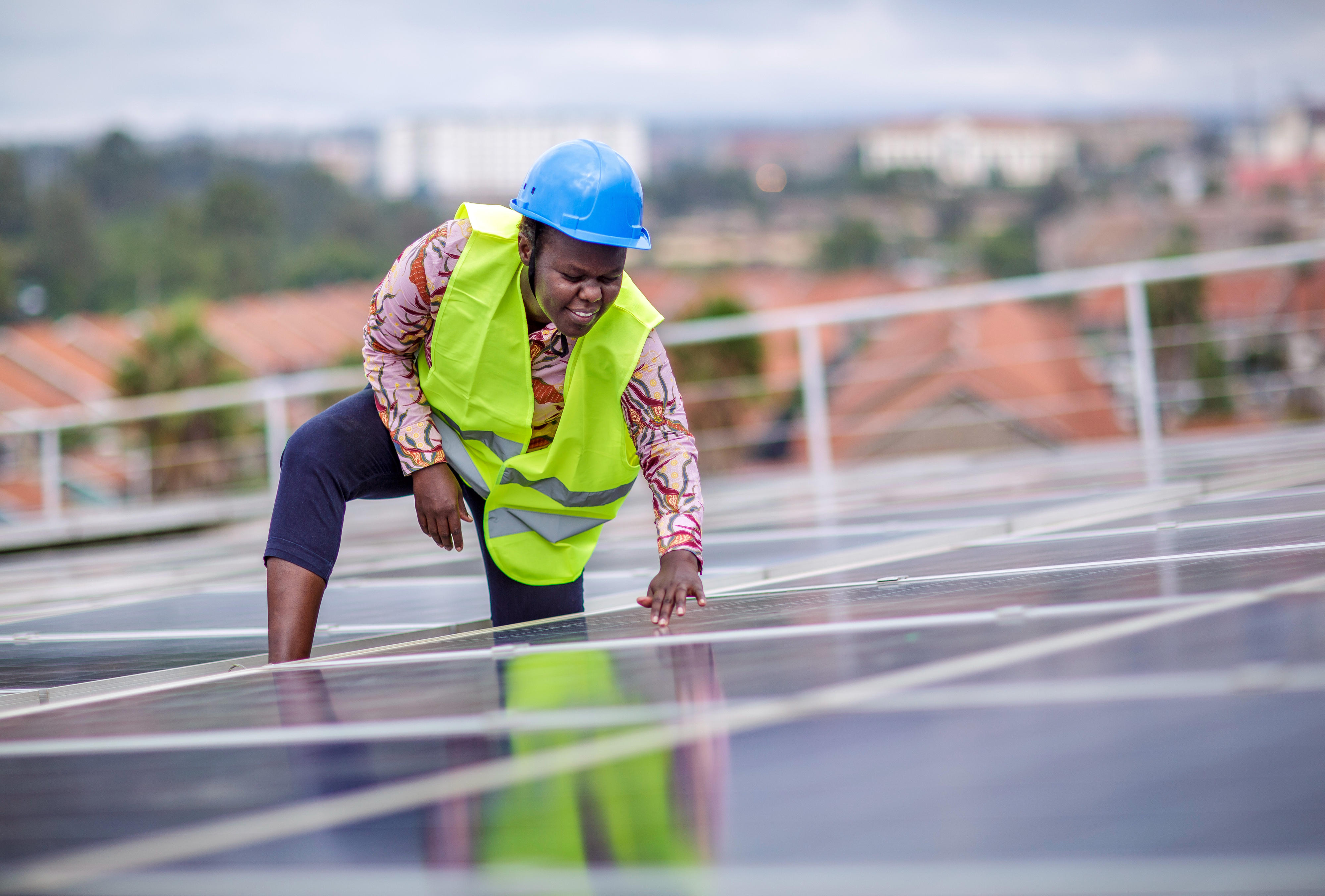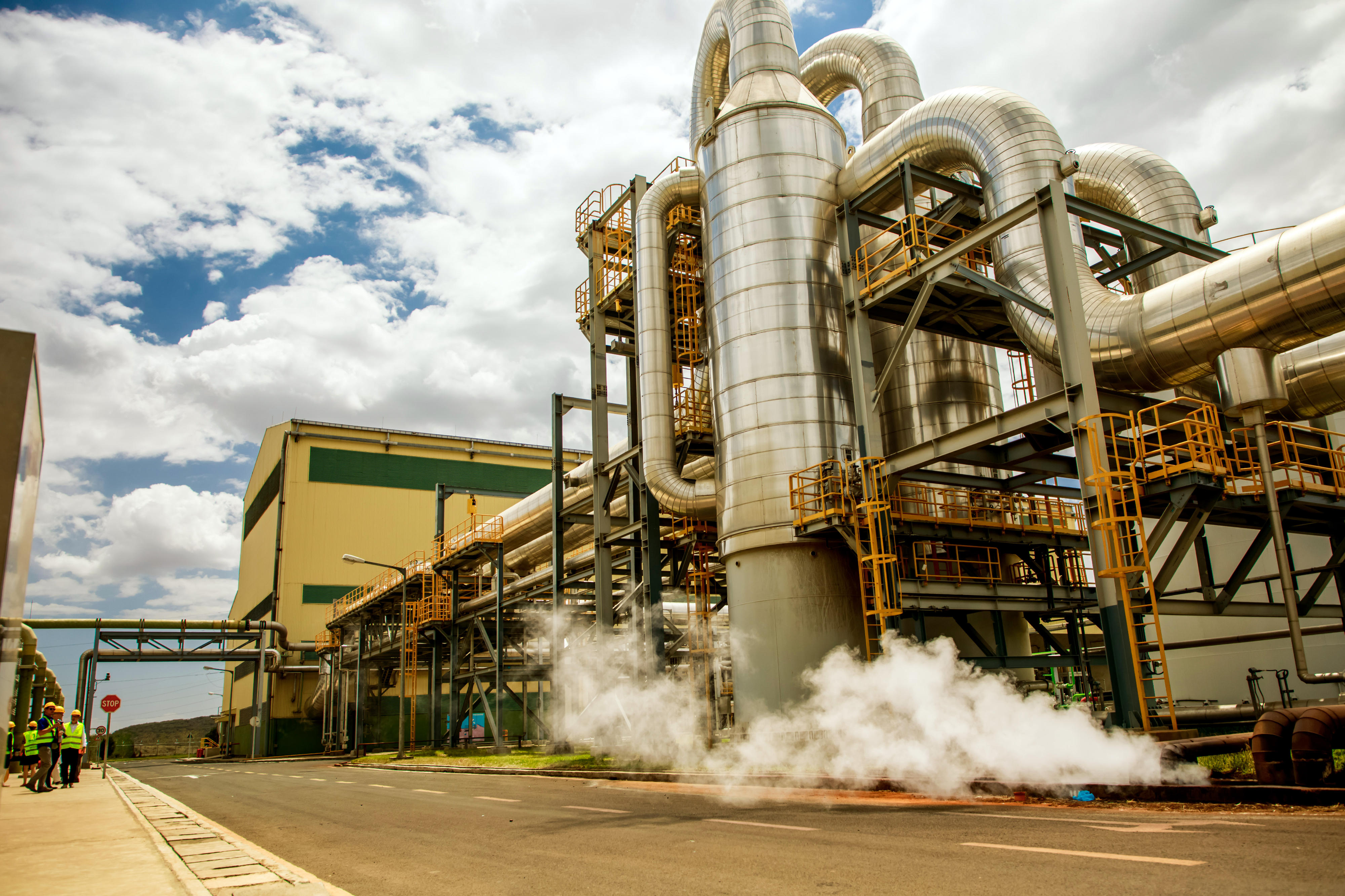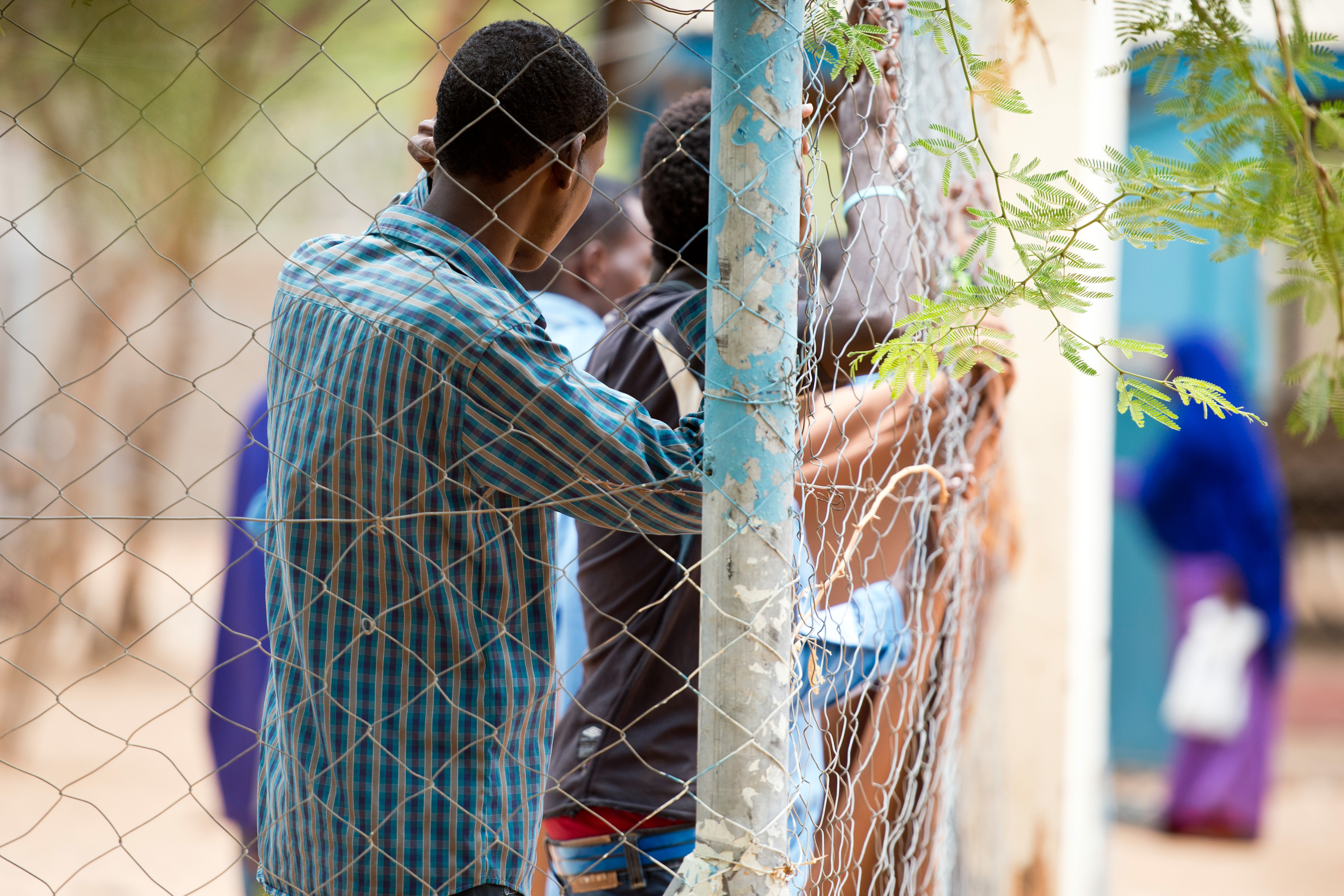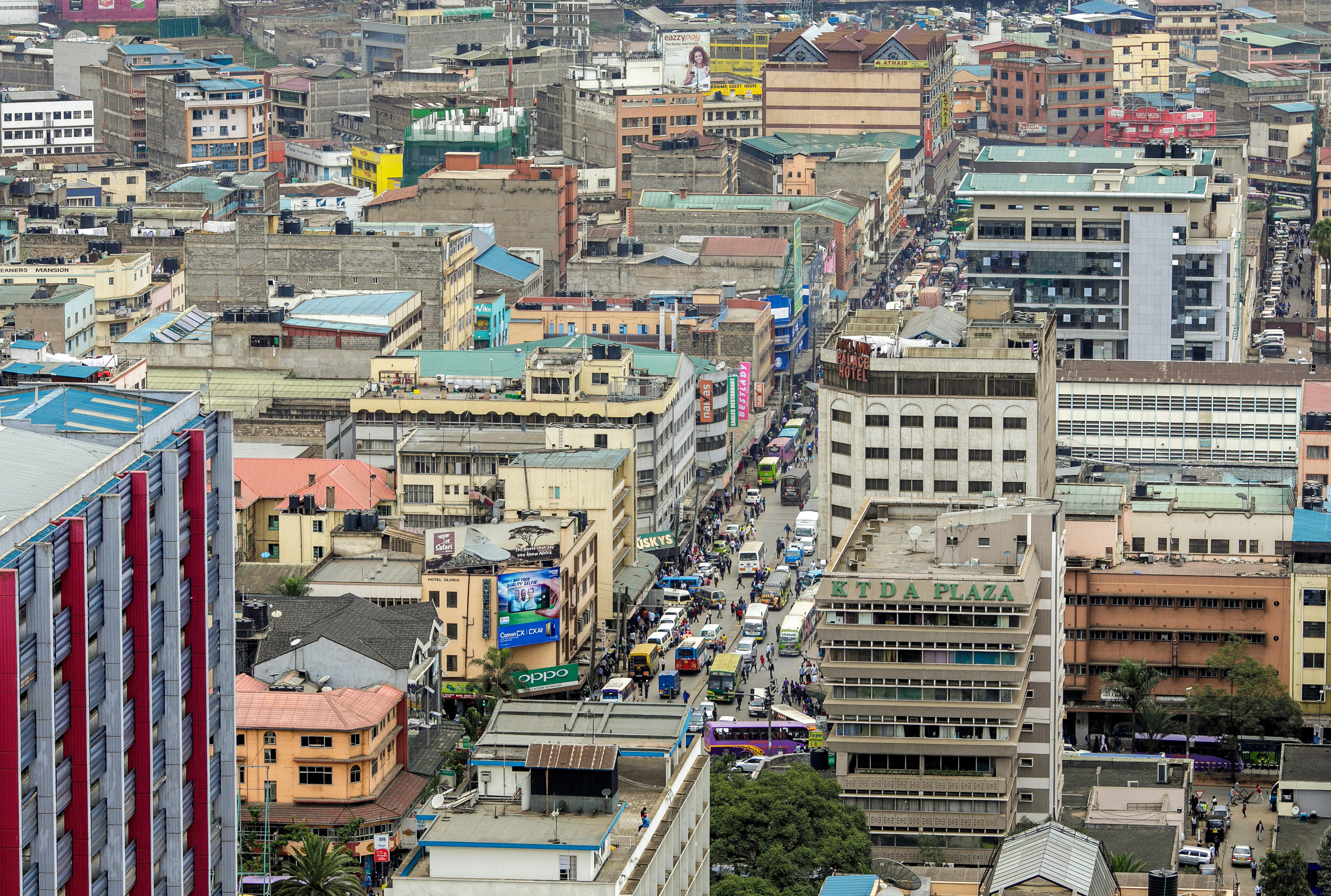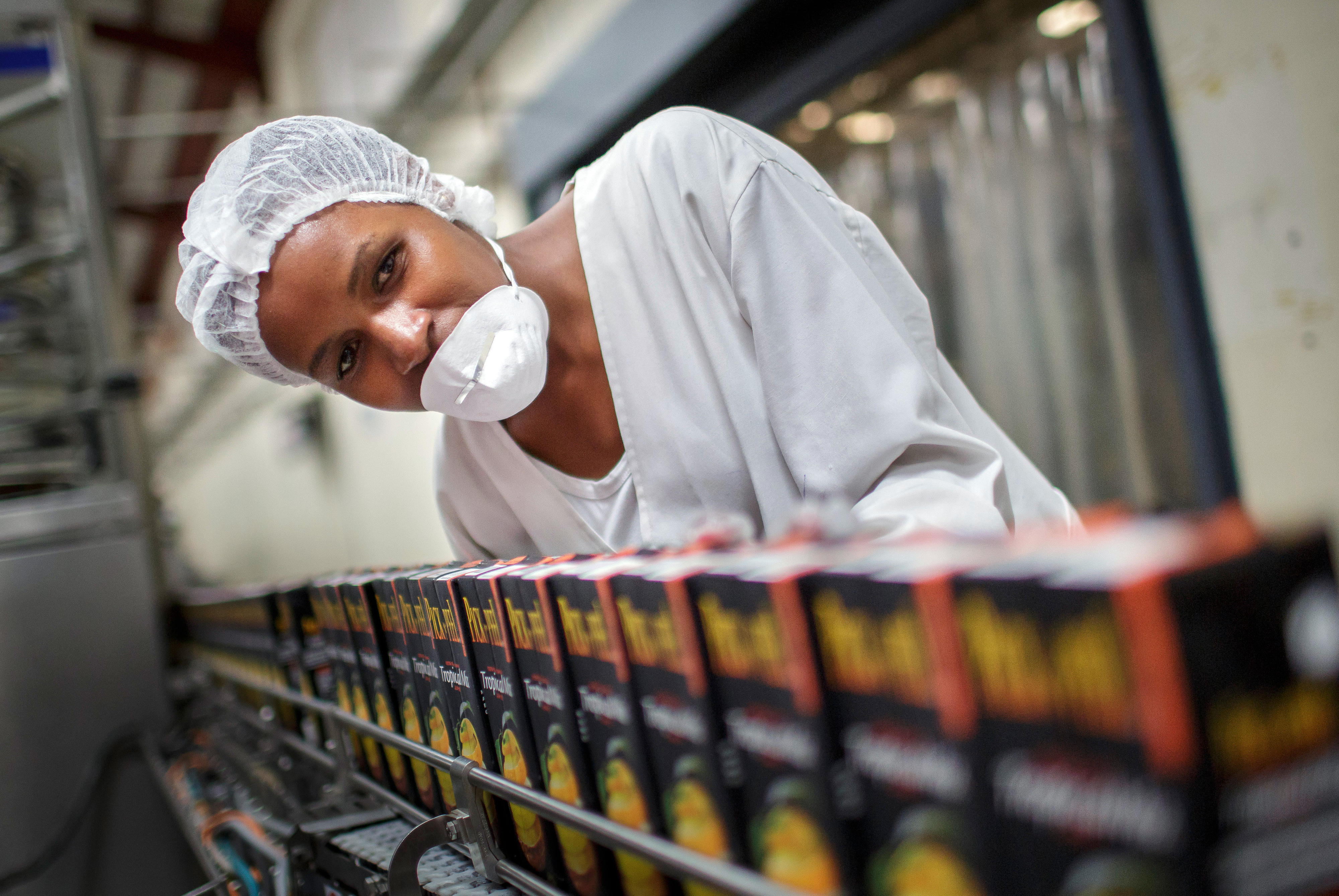Branch of a coffee bush in Kenya with blossoms and unripe fruit. Coffee is one of the country's main exports.
Copyright© Ute Grabowsky/photothek.net
Kenya
Kenya plays an important role within the region in security policy terms, among other things as a provider of troops for peace missions and as a mediator, for example in the Tigray conflict and in Eastern Congo. More than 577,000 refugees and asylum seekers, most of them from neighbouring Somalia and South Sudan, were registered in Kenya as at January 2023.
Kenya's economy recovered quickly from the economic impact of the COVID-19 pandemic. However, the country is vulnerable to the price shocks for consumables caused by Russia's war of aggression against Ukraine. There have been particularly sharp increases in the prices of imported fuel, fertiliser, wheat and other foods.
Kenya is strongly affected by the impacts of climate change. The Horn of Africa region is currently going through the longest and most severe drought on record. The food situation in Kenya has worsened dramatically. Some 5.4 million people, especially in the northern and north-western parts of the country, are threatened by hunger. At the same time, high levels of public debt, partly as a result of the COVID-19 pandemic, are limiting the government's scope for action.
In the current Human Development Index (HDI), Kenya ranks 143rd out of the 193 countries listed.
German development cooperation with Kenya
Germany is one of Kenya's biggest supporters. The two countries' cooperation is geared towards facilitating economic development, achieving sustainable poverty reduction, and reducing social inequalities.
In November 2022, Kenya and Germany entered into a Climate and Development Partnership in order to jointly boost Kenya's climate action efforts. One focus of the Partnership is on increasing the use of renewable energy. Kenya has adopted the ambitious goal of generating 100 per cent of its electricity from renewable sources by 2030. A second focus is the improvement of food security through the adaptation of agricultural systems to climate change. There are also plans for using renewable energy to generate green hydrogen for fertiliser production in order to reduce Kenya's dependency on expensive fossil fertiliser (see also Core area “Climate and energy, just transition”).
At the government negotiations in December 2022, the German government committed 153 million euros in new funding for Kenya. This comprises 127 million euros in Financial Cooperation funding and 26 million euros in Technical Cooperation funding.
In addition, the BMZ is providing funding for Kenya under its special initiatives “Transformation of Agricultural and Food Systems” and “Displaced Persons and Host Countries”.
There are plans for the provision of additional funding within 2023 for the Climate and Development Partnership.
The two sides agreed to focus their cooperation on the following core areas:
- Transformation of agricultural and food systems
- Sustainable economic development, training and employment
- Climate and energy, just transition
The next government negotiations with Kenya are planned for 2024.
SDG trends for Kenya
- On track or maintaining SDG achievement
- Moderately improving
- Stagnating
- Decreasing
- Trend information unavailable
